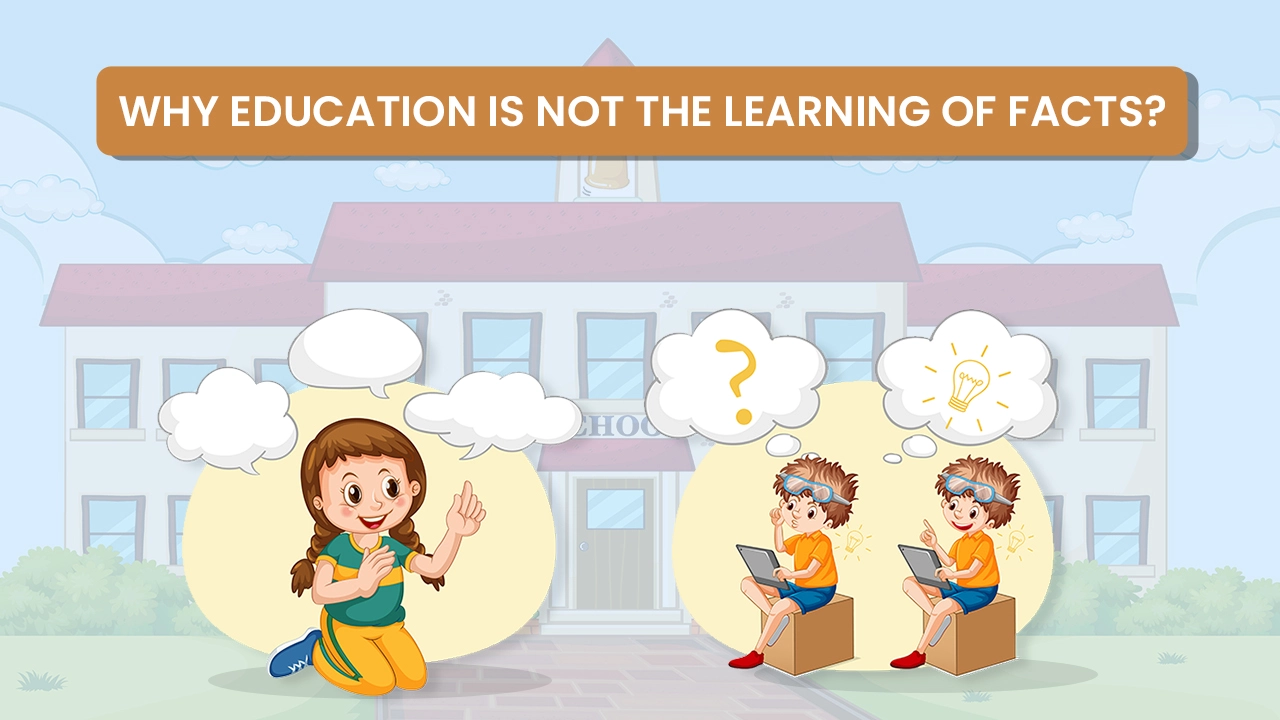Why Education is not the Learning of Facts?
Have you ever heard the saying “Knowledge is Power”? While there’s no denying the importance of knowledge, education is about much more than simply memorizing facts and figures. It is far beyond memorizing dates, formulas, and facts in school days. It’s about developing the ability to think critically, solve problems, and innovate. In simplest terms, this means that Education is not the learning of facts instead, it’s more about acquiring the skills to know how and where to apply those facts apply in real-life situations.
In today’s fast-paced and complex world, the crucial skills, which are acquired by training the mind to think creatively and critically, are more valuable than ever. This necessitates a shift in the education system from one that prioritizes rote memorization to one that nurtures these essential skills.
What Should be the Key Focus of Education?
In today’s complex world, students must be prepared to navigate a constantly changing landscape. By fostering the essential skills, as mentioned below, education can prepare students not only for academic success but for personal and professional success as well.
Critical Thinking Skills
We need individuals who can think beyond what they have been taught and come up with innovative solutions to complex problems. Hence, when it comes to education impartation at schools, the focus should be on developing critical thinking skills by encouraging students to ask questions, analyses information, and evaluate different perspectives.
Communication Skills
In addition to critical thinking skills, communication skills are also essential in today’s world. Students must be able to express themselves effectively to succeed in their personal and professional lives. For this to happen, it is important that students are provided with various opportunities like public speaking competitions to debates and discussions, which help to encourage and prepare them to express their thoughts and opinions confidently.
Creativity and Problem-Solving
The education system should focus on developing individuals who can not only think critically and communicate effectively but also be creative problem solvers. For this, it is important that students’ creativity and innovation instincts are aptly nourished and nurtured. This can happen only when students are not bound within the four walls of the classroom and are instead provided with a conducive environment that encourages them to think out of the box and come up with creative ideas to solve complex issues.
“Education is not the learning of facts, but it is a training of mind to think” as coherently stated by Albert Einstein rings so true in today’s fast-paced world. Today, where information is easily accessible at our fingertips, education just can’t be defined as something that’s all about memorizing a bunch of facts. Instead, it is more about developing critical thinking skills, problem-solving abilities, and creativity. After all, the purpose of education is not just to impart knowledge but to prepare students for life beyond the school gates. The goal should be to provide young minds with an environment that nurtures them holistically and is inclusive of intellectual, emotional, and physical growth dimensions. This ensures that every student is challenged to reach their full potential, not just academically but also in terms of their skill development.





